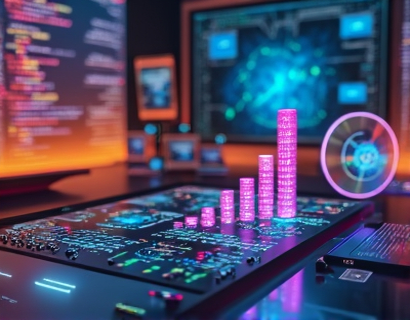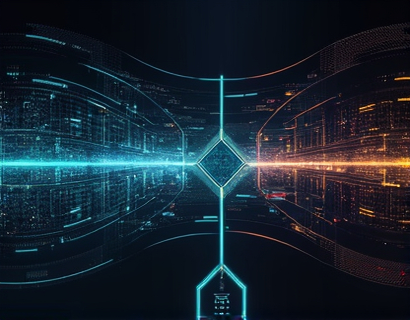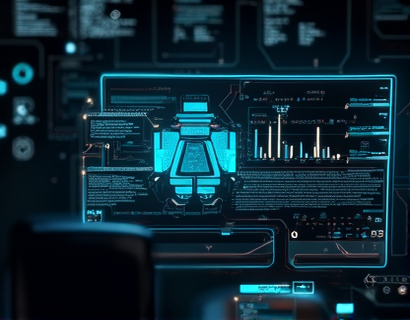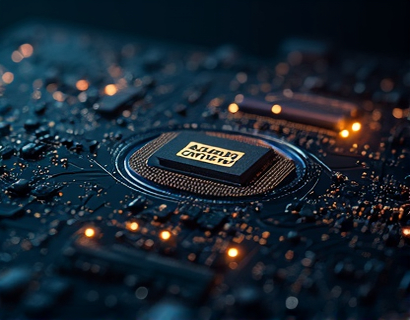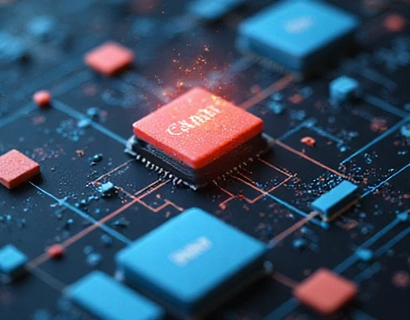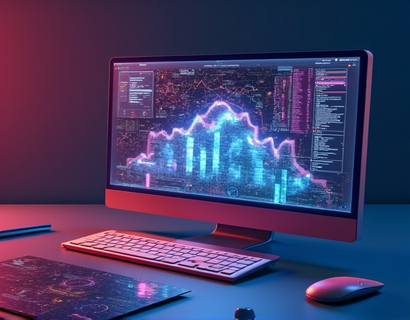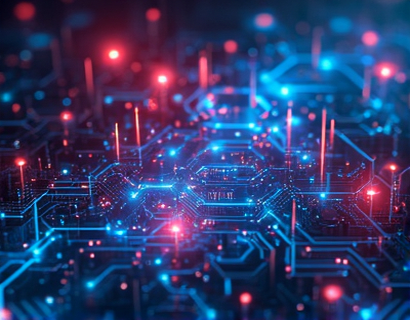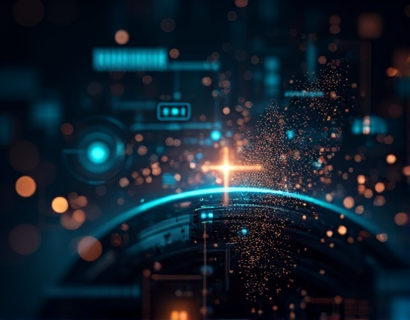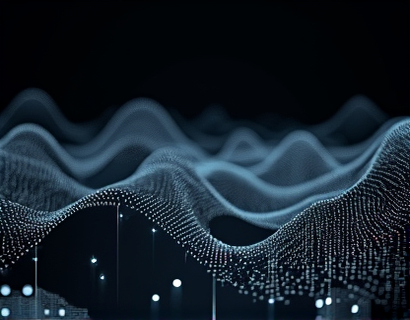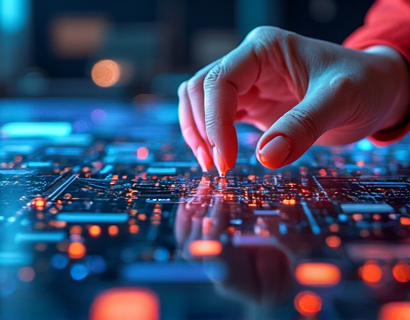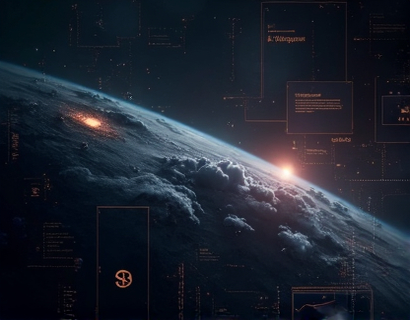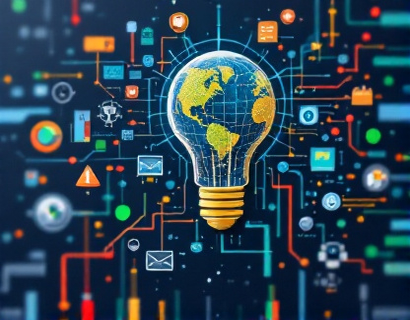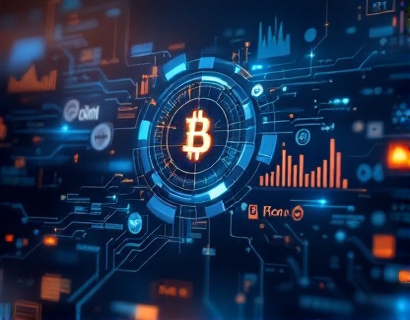Decentralized Productivity: Unleashing Efficiency and Innovation with AI and Crypto Integration
The integration of artificial intelligence (AI) and cryptocurrency is ushering in a new era of decentralized productivity, promising to redefine how professionals approach their work. This transformative blend of technologies offers a seamless and efficient digital workflow, enhancing productivity and fostering innovation. As we explore this cutting-edge fusion, we will delve into how these advancements can be harnessed to maximize professional potential and streamline tasks in the modern digital landscape.
The concept of decentralized productivity leverages blockchain technology to create applications and services that operate without central authority, ensuring transparency, security, and efficiency. When combined with AI, these decentralized systems can automate complex tasks, analyze vast amounts of data, and provide insights that were previously unattainable. This synergy not only optimizes individual workflows but also fosters a collaborative environment where innovation thrives.
Understanding Decentralized Applications
Decentralized applications, or dApps, are software programs that run on a blockchain network rather than on a central server. This decentralized nature means that dApps are less susceptible to censorship, downtime, and single points of failure. They are built on open-source protocols, allowing anyone to inspect, audit, and contribute to their development. This transparency and community-driven approach are fundamental to the decentralized productivity ecosystem.
One of the key features of dApps is their ability to operate on a peer-to-peer basis, eliminating the need for intermediaries. This not only reduces costs but also speeds up processes. For instance, in a decentralized project management tool, team members can collaborate directly, with all transactions and communications recorded on the blockchain. This ensures accountability and provides a tamper-proof history of the project's progress.
AI in Decentralized Productivity
AI plays a crucial role in enhancing the capabilities of decentralized applications. Machine learning algorithms can analyze data from various sources, identify patterns, and make predictions, all within a decentralized framework. This integration allows for smarter decision-making, automated task management, and personalized user experiences.
For example, an AI-powered decentralized calendar application can learn from a user's scheduling habits and suggest optimal meeting times, taking into account the availability of all participants. It can also automatically translate messages and documents, breaking down language barriers and enhancing global collaboration. Such features not only save time but also improve the quality of work and communication.
Enhancing Efficiency through Automation
One of the most significant benefits of combining AI and decentralized technology is the automation of repetitive and time-consuming tasks. Smart contracts, self-executing contracts with the terms directly written into code, can automate workflows and ensure that tasks are completed accurately and on time. This reduces the need for manual intervention and minimizes human error.
Consider a decentralized supply chain management system. Smart contracts can track the movement of goods, verify transactions, and update inventory in real-time. AI can predict demand, optimize routes, and identify potential bottlenecks, ensuring a smooth and efficient supply chain. This level of automation not only boosts productivity but also reduces operational costs.
Fostering Innovation and Collaboration
The decentralized and AI-driven ecosystem encourages innovation by providing a platform where developers and users can collaborate and build upon each other's work. Open-source projects and community-driven development foster a culture of shared knowledge and continuous improvement. This collaborative environment accelerates the development of new tools and applications, keeping pace with the rapidly evolving digital landscape.
For instance, a decentralized marketplace for AI models allows developers to upload, share, and monetize their machine learning algorithms. This marketplace can be powered by cryptocurrency, ensuring fair compensation for creators and incentivizing the development of high-quality models. Users can access a wide range of AI tools, tailored to their specific needs, without the barriers of traditional software licensing.
Security and Privacy in Decentralized Productivity
Security and privacy are paramount in any productivity solution, and the combination of AI and decentralized technology addresses these concerns effectively. Blockchain's inherent security features, such as cryptographic hashing and consensus mechanisms, ensure that data is protected from unauthorized access and tampering. AI can further enhance security by detecting and mitigating potential threats in real-time.
Privacy is another critical aspect, as decentralized applications can be designed to maintain user anonymity and control over their data. Zero-knowledge proofs, a cryptographic method, allow users to prove the validity of information without revealing the information itself. This ensures that sensitive data remains confidential while still enabling secure and efficient collaboration.
Case Studies and Real-World Applications
Several real-world applications demonstrate the potential of decentralized productivity enhanced by AI and cryptocurrency. For instance, a decentralized content creation platform uses AI to curate and monetize user-generated content. Creators can upload their work, and AI algorithms recommend it to relevant audiences. The platform uses cryptocurrency to reward creators based on engagement and quality, creating a fair and sustainable ecosystem.
Another example is a decentralized research collaboration tool that leverages AI to manage and analyze large datasets. Researchers from different institutions can contribute to a shared repository, with AI assisting in data integration and analysis. This tool not only accelerates research but also ensures that findings are transparent and verifiable, fostering trust and collaboration in the scientific community.
Challenges and Future Prospects
While the integration of AI and decentralized technology offers numerous benefits, there are challenges to overcome. Scalability remains a significant issue, as blockchain networks can struggle to handle high volumes of transactions. However, ongoing developments in layer 2 solutions and blockchain optimizations are addressing these concerns.
Interoperability between different blockchain platforms is another area that requires attention. Standardizing protocols and creating bridges between networks will enhance the seamless integration of decentralized applications and AI services. As these challenges are resolved, the potential for decentralized productivity will continue to grow, opening up new possibilities for professionals across various industries.
Conclusion
The convergence of AI and decentralized technology is revolutionizing productivity, offering a powerful toolkit for professionals to enhance their workflows and drive innovation. By leveraging the strengths of both domains, we can create a more efficient, secure, and collaborative digital environment. As this ecosystem continues to evolve, it is essential for individuals and organizations to embrace these advancements and explore the endless possibilities they offer.




